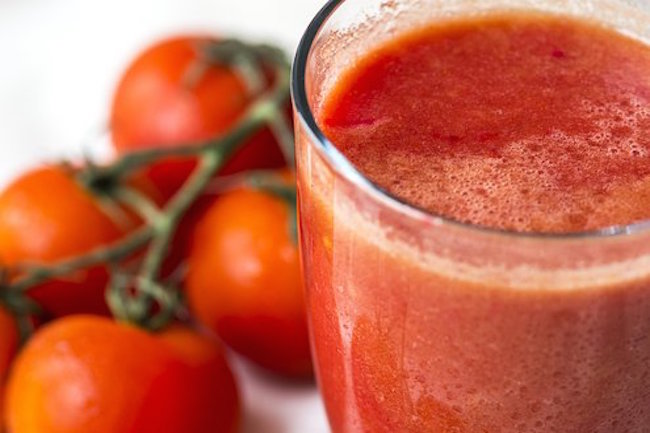Can tomato juice improve your blood pressure? by Dr. Joseph Mercola for Mercola
In answer to the question of whether drinking tomato juice has a positive influence on your blood pressure level, the answer is a resounding “yes,” based in part on a recent, yearlong clinical study in Japan involving 481 men and women.
The study, published in Food Science & Nutrition, involved participants, aged between 21 and 74 years, who were supplied with as much unsalted tomato juice as they wanted (consuming an average of just under a cup of tomato juice per day) after being screened for such cardiovascular risk factors as blood pressure, glucose tolerance and their serum lipid profiles.1
At the end, new screenings revealed that 94 individuals with high and moderately high blood pressure levels, including some untreated, had significant decreases in both their systolic and diastolic blood pressure, with no other changes made in their overall lifestyles.
“Further, the serum low‐density lipoprotein cholesterol (LDL‐C) level in 125 participants with untreated dyslipidemia (high levels of fat in the blood) significantly decreased.”2
Researchers identified the antioxidant lycopene as not only the natural pigment that gives tomatoes their deep red color, but the fruit’s most abundant natural carotenoid. Cooking tomatoes, for tomato paste, for example, increases their potency and bioavailability,3 and promoting increased lycopene absorption in your gut.
Other plant-based foods contain lycopene, but not nearly as much as there is in tomatoes. Other nutrients in tomatoes include flavonoids such as rutin, kaempferol and quercetin, lutein (another carotenoid), vitamin C, folate and potassium.
All of these ingredients help maintain heart health, but increasing your potassium intake may be one of the most important changes to make in your diet to lower your cardiovascular disease risk.
Further, people who have the lowest levels of lycopene in their blood have a higher increased risk for atherosclerosis, aka acute plaque buildup, and greater arterial thickness and stiffness.4 People with atherosclerosis in their carotid arteries (leading to the brain) that can be detected by ultrasound also have lower blood levels of lycopene compared with people with normal carotids.5
Additional studies show lycopene to be associated with numerous advantages for your heart, specifically strong antioxidant activity. The luscious red fruit (not the vegetable most think it is) contains many other beneficial antioxidants, including alpha tocopherol (vitamin E), alpha carotene, beta-carotene and retinol (vitamin A), but none at nearly the level of lycopene.
Lycopene for blood pressure may improve your heart, too
An Israeli study in 2001 noted that lycopene, as found in tomatoes, is also found in other fruits and vegetables. One reason it’s an effective antioxidant is because it inactivates free radicals.6Researchers in Finland revealed that due to the abundant provision of lycopene in tomatoes and other produce, the risk of ischemic stroke could be lowered by 59%.7
Study subjects included 1,031 middle-aged men. Those with the highest levels of lycopene in their blood were found 55% less likely to have any type of stroke compared to people with the lowest amounts. For the most common type of stroke — those caused by blood clots — men were assessed as being 59% less apt to have a stroke. According to University Health News:




